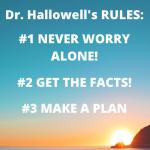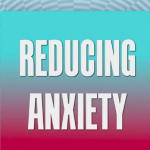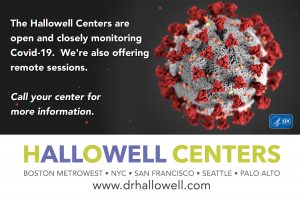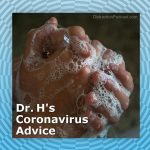Dear Friends,
That’s what we’re all doing now in the corona era, isn’t it?, figuring out a system. Trying to take care of ourselves while making sure our loved ones are taking care of themselves or being well taken care of, wherever they may be. Applying for a loan. Asking landlords for temporary rent reduction. Trying to stay sane and not buy out the store on toilet paper.
Here’s my update from the front.
We’re all on the front, so no matter where you are or where I am, we’re all engaging on the front in this war against an enemy we can’t even see. We’re all trying to figure out a system that works for us and our group, whatever that group, team, family, business, or community may be.
How are you doing on your front? Are you home? Alone? With kids? With dog (I hope!)? I’m still coming into my office, but “seeing” all my patients via phone, face time, or Zoom. Pretty soon I will stop coming into the office altogether and work entirely from home once we figure out a system for how to manage the logistics of scheduling, writing prescriptions, communicating with each other, billing, and making what-if-this-happens contingency plans.
How about this freakin’ contingency? Was the corona virus on anyone’s list of contingencies to plan for last Thanksgiving? It’s like the old joke, How do you make God laugh? Tell him your plans.
Time to Give Thanks
But this is a time to thank God for lots of things, for the Internet, social media, the telephone, and television to name a few. As much as we complain about how these devices preoccupy our children and us, during this crisis they are true life-savers. One piece of advice though: do not over-dose on news. It can poison your system, not as badly as the virus, but it just is not good for you to O.D. on negative energy, which is what too much news does.
But we do need facts, hence some access to news is essential. Then, based on the news, we figure out a plan, a proverbial system.
Here are some tips on figuring out a plan:
- Consult with others.
- Be open to all suggestions.
- Get creative.
- Prioritize what matters most.
Financial Concerns
In terms of prioritizing, next to our health, the biggest worry most of us share is financial. Whatever out jobs might be, we’re all trying to figure this one out, not just for ourselves, but the people we care about as well as our businesses. My work as a writer can be done anywhere, thank goodness.
But my work as a doctor, and the work all the clinicians who work in my office do, depend upon contact with our patients. Fortunately, 90% of this contact can be gained off-site, remotely, so we’re “figuring out a system” for how to do that most efficiently, but also with the warmth we believe is so important in our work. Right now I am saying, Thank God for Zoom.
Always do what my mother and likely yours taught me and you and look for the blessings.
You are much more productive, useful, and energetic if you stoke up on positive energy. Yes, we are living in a crisis, facing potential disaster, the world temporarily falling into shambles. But we are not without power, resources, and wit. If we keep those wits about us, we will, every day, solve one problem after another and come up with, you got it, a system!
Your system will not appear instantly. It will evolve day by day, minute by minute. We’re forced to grope in the dark these days, bearing with the inner churning uncertainty creates, looking for whatever flashlights or matches we can find to light our way. But the lights are there, paltry though they may be, and every inch of progress we can make makes us feel better, more confident. And feeling more confident—whether the feeling matches up with reality or not—is a super-power these days.
Build Confidence and Maintain a Positive Attitude
Confidence—informed confidence, not ignorant bravado—works wonders in times of crisis and distress. Hand-wringing, moping, and foretelling doom is not only counterproductive, it is bad for you in myriad ways.
So, to build confidence and maintain a positive attitude in these ominous and upsetting times, try the following
- reach for each other, from a distance;
- stay in touch with your friends and people you love;
- call people often, just to buck each other up and hopefully laugh;
- bake a cake or cook up some goody you really like;
- remember, we’re all in this together;
- call whomever you call to get a loan or get food or inquire about a new
- mortgage now that rates are so low;
- find humor wherever you can; it’s impossible to worry and laugh at the same time
- start a new project you can do at home, like start that novel or memoir you’ve been meaning to write or at long last straighten up the basement or attic or both!;
- read entertaining books of all kinds;
- don’t read or watch upsetting stuff;
- watch your favorite movies on TV;
- try popcorn; it’s a good, low-cal comfort anti-anxiety food
- play with your dog if you’re lucky enough to have one; if you don’t, remember dogs you’ve known and loved, and if there aren’t any, get a box of Kleenex and read Old Yeller; or rent on Amazon to watch.
- most people are going to be kinder these days, believe it or not; try to be one of those
- lend a hand where you can; it is a proven fact that in giving we receive
- stay in touch
I can promise you, better days await. But, and I can promise you this as well, we can find hidden treasures and make unexpected gains during this time, especially if we buck each other up.
Warm regards,
Edward (Ned) Hallowell, M.D.
Resources
Centers for Disease Control and Prevention
How the Hallowell Centers Can Help You: We are all concerned about safety with COVID-19, which is why The Hallowell Centers are closely monitoring the current situation regarding the coronavirus (COVID-19.) We will remain open, but all sessions will be conducted remotely.
Fortunately, psychiatry does not usually require the professional and the client to meet in-person. To that end, we want you to know at our offices in Boston MetroWest, New York City and San Francisco, are geared up and ready to offer remote sessions to anyone who wants them. READ MORE HERE!
Need help managing your mental health during these uncertain times? Even if you are not a regular client or patient of ours and you’d simply like to have an appointment to check up on your mental health during these stressful times, our clinicians are here to help. Just reach out to the any of The Hallowell Centers to set up an appointment.
Working From Home? If you don’t want the Coronavirus to Infect Your Productivity, then CoreCoaching is the antidote! Learn more HERE.
Dr. Hallowell Recommends:
During these trying, uncertain times, Dr. Hallowell’s book: Worry: Hope and Help for a Common Condition, is filled with practical solutions, anecdotes, and insightful guidance on how to manage worry.
Need help managing your stress during these tumultuous times? Then listen to Dr. Hallowell’s podcast on Reducing Anxiety.
The Live Digital Summit is over. However, you can still get an all access pass to Dr. Hallowell’s session and some of the most recognized thought-leaders from around the globe in the field of ‘Technology and Parenting.’
The Digital Sanity Summit features in-depth interviews with 18+ leading global experts discussing classic issues such as:
- parent controls
- cyber-safety
- using tech to cultivate social relationships
- talking with kids about tech without conflict
If you think the “right help” for ADHD begins and ends with medication about, read Dr. Hallowell’s blog post on Busting ADHD Myths on Medication!
When tragedies strike or bad news is at your doorstep, you may wonder how you get through this. In Dr. Hallowell’s blog on “How Do We Do It?”, he offers a solution.
Are you struggling with reading or poor attention? Looking for a non-medication treatment for ADHD, learn more about the Zing Performance Program.
Disclosure: I may be an affiliate for products recommended and may earn a commission if you purchase.


 Your mental health is important during these uncertain times. In this week’s podcast, Dr. Hallowell checks-in regarding the Coronavirus pandemic, and reminds listeners of ways to deal with the stress and anxiety.
Your mental health is important during these uncertain times. In this week’s podcast, Dr. Hallowell checks-in regarding the Coronavirus pandemic, and reminds listeners of ways to deal with the stress and anxiety. March 18, 2020
March 18, 2020







